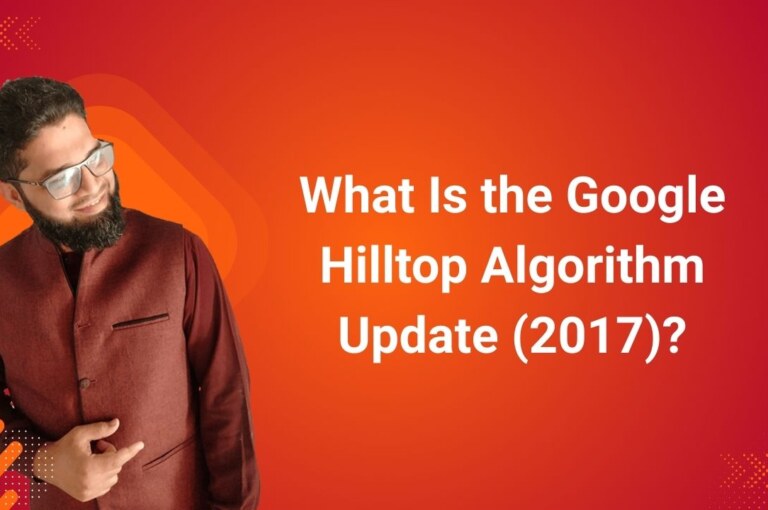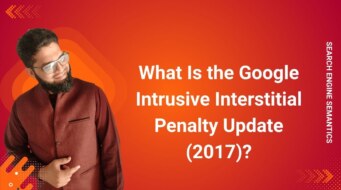What Is the Google Hilltop Algorithm Update (2017)?
The Google Hilltop Algorithm is one of the earliest foundations of authority-based ranking in search engines. While often misunderstood as a standalone 2017 Google update, Hilltop is better understood as a conceptual algorithmic framework that still influences how Google evaluates topical authority, expert documents, and contextual link relevance today.
This pillar guide explains Hilltop with historical accuracy, modern interpretation, and practical SEO implications—while connecting it tightly with today’s semantic SEO ecosystem.
Understanding the Origins of the Hilltop Algorithm
The Hilltop algorithm originated from an academic paper authored by Krishna Bharat and George A. Mihăilă, two researchers later associated with Google. Long before concepts like PageRank dominated SEO conversations, Hilltop introduced a topic-sensitive approach to evaluating authority.
Instead of asking “Which page has the most links?”, Hilltop asked:
“Which pages are cited by multiple independent experts on this specific topic?”
This idea marked a shift away from raw link popularity toward expert-driven relevance, laying groundwork for later concepts such as authority sites and entity-based SEO.
Was There a “Google Hilltop Algorithm Update” in 2017?
Despite widespread references, Google never officially announced a Hilltop algorithm update in 2017.
What did happen around that time was a noticeable reinforcement of signals related to:
Topical expertise
Contextual backlinks
Trust-driven ranking signals
These shifts overlapped with broader movements toward algorithm updates, search engine algorithms, and early foundations of what would later become E-E-A-T.
As a result, the SEO community began referring to these authority-focused ranking changes as a “Hilltop-style update”, even though Hilltop itself is not a named, modern update.
How the Hilltop Algorithm Works (Conceptual Model)?
Hilltop evaluates authority through expert documents, not through universal popularity.
1. Expert Document Identification
An expert document is a page that:
Focuses on a single, well-defined topic
Links out to multiple independent, authoritative resources on that topic
Demonstrates editorial intent rather than manipulation
This approach differs from traditional backlink evaluation, as outbound linking behavior matters just as much as inbound signals.
2. Topic-Specific Authority Flow
Authority under Hilltop is contextual, not global. A page may be influential for technical SEO queries but irrelevant for local SEO queries.
| Ranking Model | Authority Scope | Core Signal |
|---|---|---|
| PageRank | Global | Link quantity & strength |
| Hilltop | Topic-specific | Expert citations |
| Modern Google | Multi-layered | Links, entities, intent |
This topic-based scoring model aligns closely with keyword intent and search intent types.
3. Relevance + Authority Integration
Hilltop does not rank expert pages directly. Instead, pages referenced by multiple experts receive ranking benefits—anticipating today’s focus on link relevancy and editorial links.
Why Hilltop Mattered Then—and Still Matters Now?
Although Hilltop is no longer a visible, named algorithm, its influence is deeply embedded in modern SEO systems.
Historical SEO Impact
Hilltop encouraged:
High-quality editorial linking instead of link farms
Niche expertise over broad, shallow coverage
Early resistance to black hat SEO tactics
It also helped Google combat search engine spam before later systems like Penguin and Panda existed.
Modern Algorithmic Echoes
Today, Hilltop’s DNA is visible in:
Topical authority modeling
Knowledge Graph relationships
Google’s ranking systems now combine these ideas with machine learning models like RankBrain, BERT, and MUM—but the expert-citation logic remains intact.
Hilltop vs PageRank vs Modern Authority Signals
| Aspect | Hilltop | PageRank | Modern Google |
|---|---|---|---|
| Authority Source | Expert pages | Any linked page | Entities, links, intent |
| Scope | Topic-specific | Global | Contextual & user-driven |
| Link Focus | Editorial relevance | Link strength | Link + entity trust |
| SEO Strategy | Expertise & citations | Link building | Semantic depth |
This evolution explains why pure link acquisition without relevance now risks over-optimization or even algorithmic penalties.
Practical SEO Lessons from the Hilltop Algorithm
1. Build Expert-Level Content, Not Just Pages
Creating cornerstone content supported by tightly related subtopics mirrors how Hilltop identifies expert environments.
2. Link Out Strategically
Outbound links to authoritative resources reinforce topical credibility and support internal linking strategies rooted in semantic relationships.
3. Earn Contextual Backlinks
Links from niche-relevant sites carry more weight than generic mentions, reinforcing link equity through relevance rather than volume.
4. Avoid Artificial Authority Signals
Tactics like paid links or unnatural links contradict Hilltop principles and weaken long-term trust.
Common Misconceptions About Hilltop
| Myth | Reality |
|---|---|
| Hilltop launched in 2017 | No official update existed |
| Hilltop replaced PageRank | It complemented it |
| Hilltop is obsolete | Its logic persists |
| You can “optimize for Hilltop” | You optimize for authority |
Understanding these distinctions helps prevent confusion between historical algorithms and modern search engine optimization practices.
Hilltop’s Role in the Future of Semantic SEO
As Google moves toward:
Entity-first ranking systems
…the Hilltop principle of expert validation becomes more—not less—important.
Authority is no longer about who shouts the loudest, but who is recognized by other experts within the same semantic ecosystem.
Final Thoughts on Google Hilltop Algorithm
The Google Hilltop Algorithm is not a relic—it is a conceptual ancestor of modern SEO. While no longer visible as a named update, its influence lives on in how Google evaluates authority, relevance, and trust at a topical level.
If you focus on deep expertise, editorial relationships, and semantic clarity, you are already aligning with the same philosophy Hilltop introduced decades ago—just adapted for today’s search landscape.
Want to Go Deeper into SEO?
Explore more from my SEO knowledge base:
▪️ SEO & Content Marketing Hub — Learn how content builds authority and visibility
▪️ Search Engine Semantics Hub — A resource on entities, meaning, and search intent
▪️ Join My SEO Academy — Step-by-step guidance for beginners to advanced learners
Whether you’re learning, growing, or scaling, you’ll find everything you need to build real SEO skills.
Feeling stuck with your SEO strategy?
If you’re unclear on next steps, I’m offering a free one-on-one audit session to help and let’s get you moving forward.
Table of Contents
Toggle



